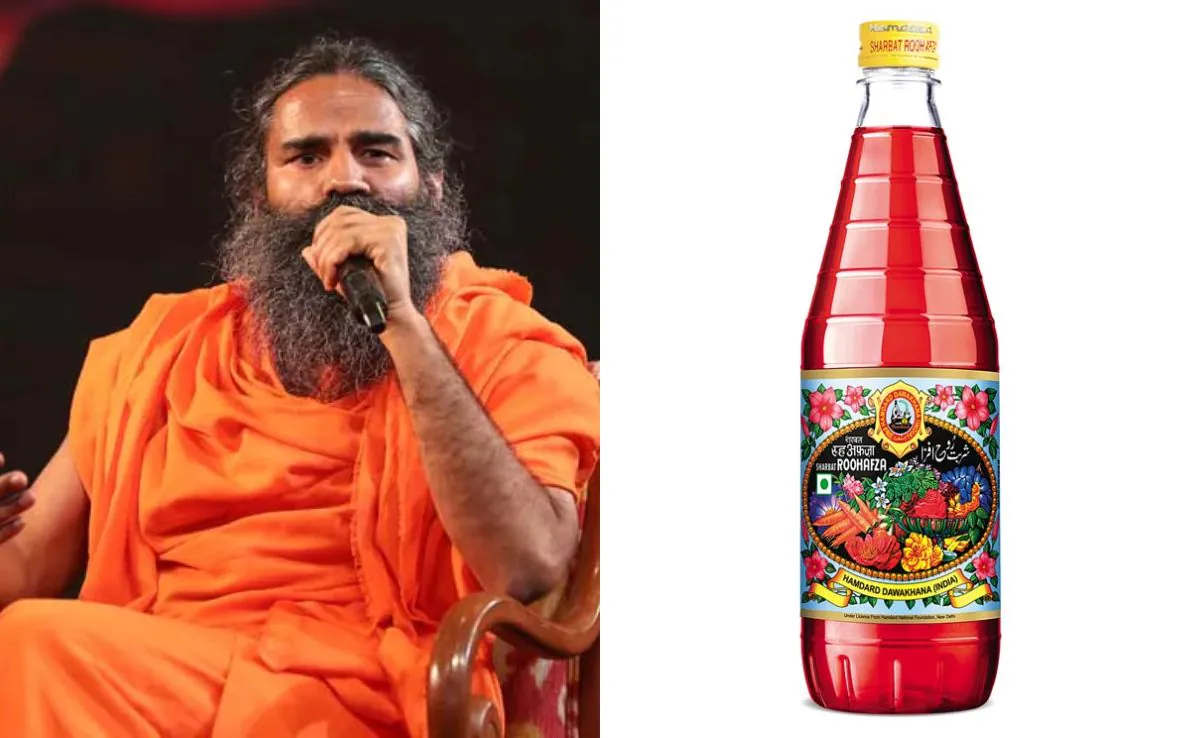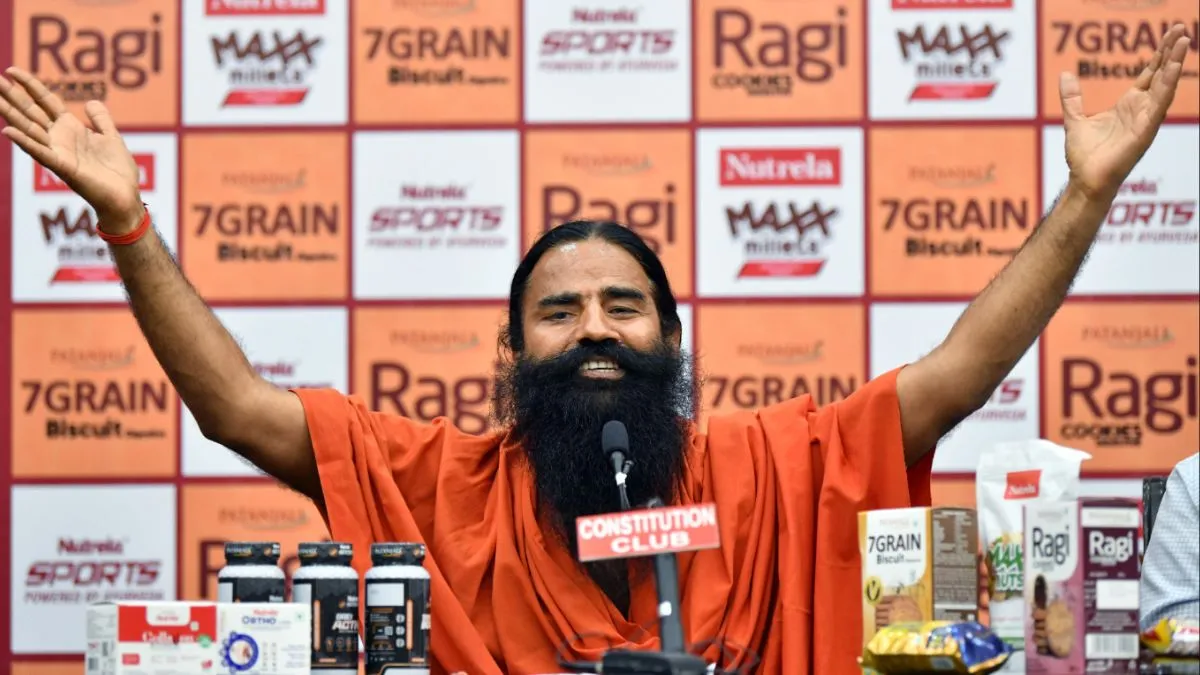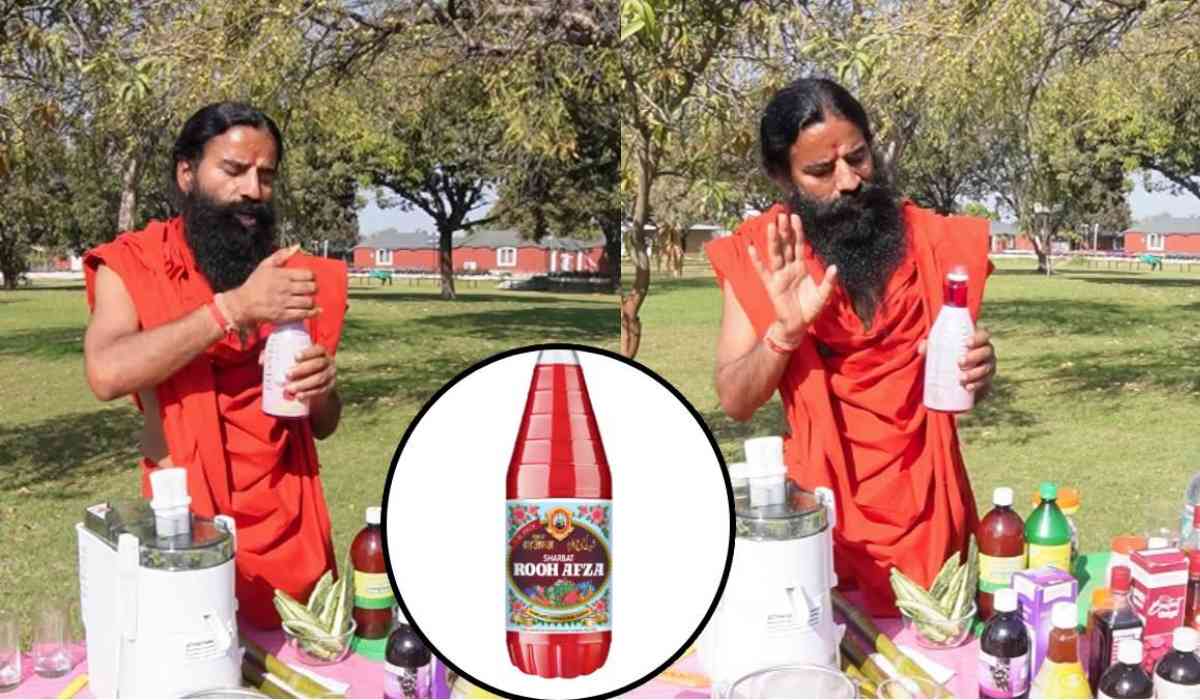Yoga guru Baba Ramdev has agreed to withdraw all advertisements, both print and video, that were deemed to disparage Hamdard National Foundation India's iconic drink, Rooh Afza. This decision follows stern observations from the Delhi High Court, which strongly criticized Ramdev’s remarks linking Rooh Afza to "Sharbat Jihad," a term that drew widespread condemnation and legal scrutiny.

Delhi High Court Condemns Ramdev’s Remarks
During a hearing on Tuesday, the Delhi High Court expressed deep disapproval of Baba Ramdev’s controversial comments. Senior Advocate Rajiv Nayar, representing Ramdev and Patanjali Foods Limited, informed the court that all related advertisements would be taken down. The matter was heard by Justice Amit Bansal, who did not mince words in his criticism.
“This shocks the conscience of the court. It is indefensible,” said Justice Bansal.
These remarks were made while the court was hearing a civil suit filed by Hamdard against the yoga guru and his company.

Origin of the Controversy
The controversy erupted earlier this month when Baba Ramdev, during a promotional campaign for Patanjali’s rose-flavored sharbat, made statements that were widely perceived as communal and defamatory.
Key Statements by Ramdev:
-
Claimed that proceeds from Rooh Afza sales were being used to fund the construction of madrasas and mosques.
-
Implied that buying Rooh Afza contributed to a "Sharbat Jihad".
-
Positioned Patanjali’s sharbat as a patriotic alternative, supporting gurukuls, Acharya Kulam, Patanjali University, and the Bharatiya Shiksha Board.
While Ramdev later attempted to downplay the controversy, claiming he did not mention any specific brand or community, the context and phrasing left little doubt about the intended target.
Legal Battle: Hamdard’s Response
Hamdard National Foundation, the maker of Rooh Afza, filed a lawsuit demanding the removal of the video content. The foundation argued that Ramdev's comments were not merely a case of commercial rivalry but constituted hate speech and promoted communal polarization.
Arguments by Hamdard’s Legal Counsel:
-
Mukul Rohatgi, appearing for Hamdard, said Ramdev’s statements were intended to malign the product on religious grounds.
-
Accused Ramdev of making remarks that went beyond product disparagement and entered the realm of inciting communal discord.
-
Asserted that calling it "Sharbat Jihad" was deeply inflammatory, especially considering the religious associations with Rooh Afza.
“Ramdev has attacked Hamdard on the basis of religion,” Rohatgi stated, stressing that such speech is dangerous and divisive.
🚨 Baba Ramdev on FIRE 🔥
"I didn’t name anyone, but Rooh Afza took 'Sharbat Jihad' personally — proves they’re doing it."
"If they build Madrasas & Masjids, Sanatanis must STAY ALERT." pic.twitter.com/FpVzdp9Ldg— Megh Updates 🚨™ (@MeghUpdates) April 18, 2025
Ramdev’s Justification
Despite the uproar, Baba Ramdev attempted to explain his comments, asserting that he had not referred to any specific company or community. Nevertheless, his promotional speech painted a clear dichotomy between two cultural ideologies:
“If you drink that sharbat, madrasas and mosques will be built. But if you drink this [Patanjali’s sharbat], gurukuls will be built, Acharya Kulam will be developed, Patanjali University will expand, and the Bharatiya Shiksha Board will grow,” he said.
He then added:
“Just like there is love jihad, this is also a kind of sharbat jihad. To protect yourself from this sharbat jihad, this message must reach everyone.”
These remarks, widely circulated on social media, sparked backlash from several quarters, leading to calls for legal accountability and ethical advertising.
Legal and Ethical Implications
With Baba Ramdev and Patanjali Foods agreeing to withdraw the contentious content, the immediate legal crisis has de-escalated. However, the case underscores a growing concern about the use of religiously sensitive language in advertising and the responsibilities of high-profile public figures.
The Delhi High Court’s strong stance sends a clear message: Communal insinuations and hate speech, even in competitive marketing, will not be tolerated. It also serves as a precedent for how India’s judiciary is prepared to uphold secular values and ethical business conduct.
With inputs from agencies
Image Source: Multiple agencies
© Copyright 2025. All Rights Reserved Powered by Vygr Media.























